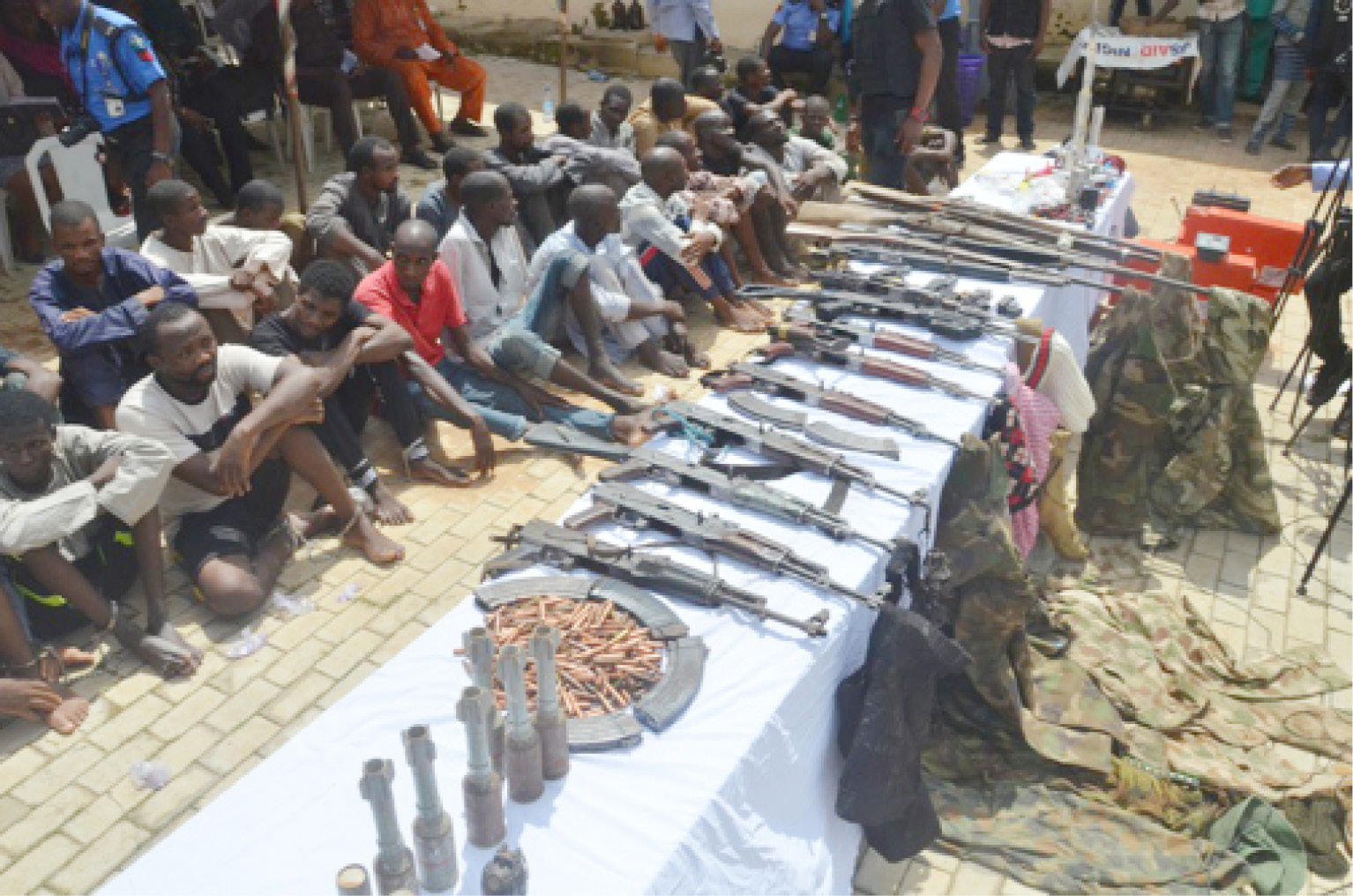By Adefolarin A. Olamilekan
Governance in Nigeria in recent times especially since the return of civil rule in 1999 increasingly attracts significant attention. The attraction is a sad tale of incessant governance failure to address the insecurity situation all over the country. There is a sense in which the current situation makes a case for a wider understanding and recognition of governance, especially with millions of illegal weapon circulation in Nigeria. The nation is not in a palatable one, but concerns over the safety of citizens. There is an inherent cry for help by the people for a decent existence in terms of security of life and properties.
As of today, the menace of illegal weapons in circulation in the land is a huge threat to our economic sustenance, unity and co-existence. It is in this that we discover the nexus between governance and millions of illegal weapons in circulation being a salient matter at this point of our national life.
The current drift and drain of governance in Nigeria in the last two decades have position many Nigerians to be conscientised by the practical experience of poverty of governance. Therefore, it is also very imperative for us to point out what governance entails in its simple sense, as well as in the context of this piece.
The Oxford Advanced Learners Dictionary, Sixth Edition defines governance as an activity of controlling a country or the way in which a country or institution is controlled. Thus, governance involves a process of control and controlling activity in a country, including arms and weapons in circulation. Again, governance can be seen as the process whereby constituted official elements wield powers, authority and enact policies concerning public life and economic decision for overall social development. However, this governance process takes the in-depth application of suitable and influential decision that impacts on the management and distribution of resources that includes revenues, man and materials. Moreso, it involves the regulation, implementation and enforcement of desirable policies for target objectives, goals and aspiration through capacity. Therefore, governance is simply controlling for desirable development result of which, safeguarding life and properties of citizens is key through exact regulations of arms and weapons is vital.
However, many reasons are being advanced to explain the continued inexorable poverty of governance in Nigeria. For instance, poor institutional capacity leads to government failure, so also is the wider inequality, access to justice and fairness that create a burden of oppression and repression. In addition to this, is the ever-rising provocation of nepotism and bigotry, ethnic sentiment that amputate national cohesion in decision making, coupled with negligence on the part of political representatives.
The recent alarm raised by the Chairman of the National Peace Committee (NPC) and former Military Head of State, General Abdulsallami Abubakar at a dialogue session of the committee with stakeholders at Transcorp Hilton in Abuja that over 6 million illegal weapons are currently traced to civilians, many of whom are jobless, hungry and angry.
“The number of small arms in circulation in Nigeria, in the hands of civilian non-state actors is estimated at 6,145,000, while the armed forces and law enforcement collectively account for 586,600 firearms”. He went further to reveal the deplorable insecurity challenge in the country. Informing the nation that 80,000 Nigerians have died in recent months with close to three million Internally Displaced Persons (IDPs) spreading across the country all because of growing dire insecurity and illegal weapons circulation in the country. He also added by saying that the security forces are not only overstretched but are under-funded, asserting that they can perform better with more sophisticated weapons, equipment and with accountable funding provided.
The concern raised by the former head of state and the chairman of National Peace Committee (NPC) stands a reason to take governance seriously over the carnage in the land. Incidentally, this has shown that even those who exercise power and authority are living in fear. It is in this context that they must pay heed to the cry of the people for help by taming the illegal weapon circulation.
Moreover, a recent report on arms proliferation in Africa tagged “Small Arms, Mass Atrocities & Migration in Nigeria” highlighted that arms proliferation gave rise to armed groups and also led to the displacement of several Nigerians. Conversely, the report stated that the proliferation of arms in Southern Nigeria has led to increasing violence in the region, such as communal clashes, cultism, kidnappings, ethnic and religious clashes, and militancy in the Niger Delta. In the same vein, the report had it that in the Northern region, due to “existing state corruption, large tracts of ungoverned spaces, and mass unemployment has been responsible for rising criminality and violence in the region.” The report opines that the aforementioned succeeded because of the proliferation of Small Arms and Light Weapons (SALW). The situation calls to question, the feasibility of the National Task Force on Small Arms and Light Weapon.
Hence, we must chart the way forward, even though it looks blink and insurmountable. We must rise to the occasion to tackle illegal weapon circulation in the country with the entire government structure confronting the menace headlong at federal, state and local government. Equally, the National Task force on Small Arms and Light Weapon and office of the National Security Adviser to the President (ONSA) must re-double their efforts in the fight against illegal arms proliferation through preventive and repressive engagement. Succinctly, appropriate people-centred governance programmes and security policies are needed to incorporate not just community policing but individuals and group policing networks of intelligence sharing. Essentially, transparency, accountability and responsibility are the key watch of governance, without this, eliminating illegal weapons in circulation is tantamount to fruitless exercise.
Olamilekan is a Political Economist & Development Researcher and can be reached via [email protected]

 Join Daily Trust WhatsApp Community For Quick Access To News and Happenings Around You.
Join Daily Trust WhatsApp Community For Quick Access To News and Happenings Around You.


